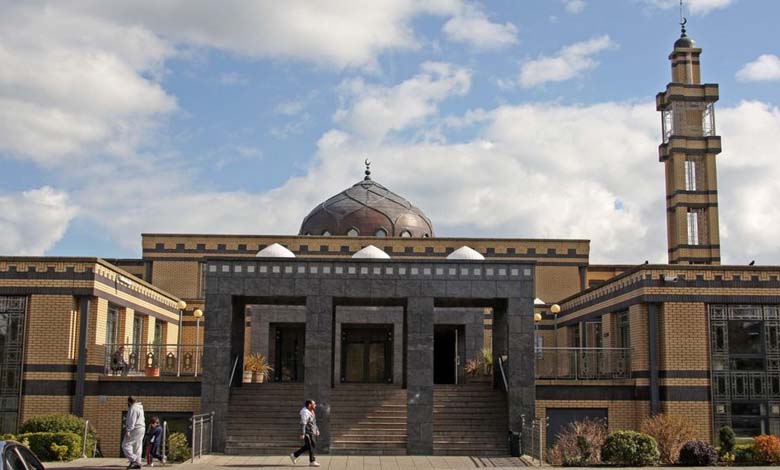The Muslim Brotherhood in Ireland: multiple arms and ongoing pressure for regulation

The issue of the Muslim Brotherhood in Ireland has risen to the forefront of the debate surrounding the group’s influence across Europe, reviving concerns over its infiltration and the persistent challenges of countering it.
In recent days, a prominent Irish parliamentarian has urged the government to investigate how the Brotherhood came to represent the country’s 100,000-strong Muslim population.
-
The Muslim Brotherhood in Ireland: Warnings Over Suspicious Funding and Calls for a Comprehensive Investigation
-
Europe and the Muslim Brotherhood Battle: The Defensive Belt Expands
Independent Senator Sharon Keogan stated that “the influence of the Muslim Brotherhood has spread, yet the Irish government has failed to address it.”
Speaking before the Irish Senate, Keogan said the government had “failed to recognize the Brotherhood’s influence in Ireland, let alone address or contain it,” warning that the group leaves “a troubling ideological footprint” in several institutions and Islamic centers.
Her comments followed the closure, last April, of the Islamic Cultural Centre in Clonskeagh—the largest mosque in Dublin—due to concerns over the alleged ties of some of its leaders to hardline Salafi currents and suspicions of internal financial irregularities.
-
Operation “Kinova” reveals details of a British “conspiracy” in Ireland
-
The Muslim Brotherhood in the UK: 39 Associations Implementing the International Organization’s Agenda
Previous pressures
Keogan’s remarks are not new, but part of broader European and domestic pressure to strengthen countermeasures against the Brotherhood, which operates directly and indirectly through several associations and networks in Ireland.
In May, a senior official at an Islamic organization was reportedly pressured to resign due to his links to the Brotherhood, according to The Irish Times.
Although his name was not disclosed, concerns were raised about his alleged connections with the movement and his management of charitable funds collected for Gaza.
The report also noted that as early as 2018, there were concerns that these charitable funds were not being properly recorded or deposited in banks.
A year earlier, in 2024, the Irish Network Against Racism, reportedly linked to the Brotherhood, became the center of controversy after receiving substantial European and Irish funding despite its affiliations, prompting calls to halt such financial support.
-
The Emergence of Women’s Role in European Muslim Brotherhood Networks, Especially in Britain
-
The Efforts of the Muslim Brotherhood to Gain Control of European Capitals
European Parliament action
Looking further back, on January 9, 2015, European Parliament member Franz Obermayr submitted a parliamentary question regarding EU funding granted to the Muslim Association of Ireland (MAI).
In 2012, the Directorate-General for Migration and Home Affairs approved funding of €449,816 for a project titled “A Sharia-based communication approach to prevent and combat contemporary forms of extremism leading to domestic terrorism in the EU.”
The main operator of this project was the MAI, which the inquiry identified as part of the Muslim Brotherhood and a member of the Federation of Islamic Organizations in Europe (FIOE), the Brotherhood’s umbrella network across the continent.
-
Why Is It Time to Reconsider the Creation of a European Army?
-
Slovenia Becomes Fourth European Country to Recognize Palestine Amid Gaza War
In 2008, the MAI organized an event featuring Azzam al-Tamimi, a well-known Hamas activist.
A 2021 report by the European Conservatives and Reformists Group stated that Ireland serves as the Brotherhood’s religious operations hub in Europe, particularly through the European Council for Fatwa and Research.
Despite the Council’s promotion of ideologically extreme views, Irish authorities have continued to invite its director, Hussein Halawa, to official state ceremonies—such as in 2019, when he recited verses from the Quran during Ireland’s National Day of Remembrance for its fallen in past conflicts.
-
The Muslim Brotherhood in France Practices Judicial Terrorism
-
The Brotherhood’s Double Game… Mohamed Khairallah, Muslim Brotherhood Activist or Zionist Arm?
A complex web of influence
Historically, the Muslim Brotherhood has played a key role in institutionalizing political Islam in Ireland. Its participation in the creation of Islamic networks is multifaceted and varies by case.
Some Irish Islamic institutions maintain historical links with the Brotherhood, while others have gradually adopted similar ideological orientations.
There are also Islamist organizations in Ireland where Brotherhood members are directly involved at different levels, while others maintain only circumstantial connections.
According to a 2016 book published by the University of Cambridge titled Islam in Ireland, the Brotherhood’s influence in the country results from an ideological overlap with prominent figures in its historical development and a shared commitment to the broader goals of global political Islam.












